Body type refers to the comprehensive, relatively stable inherent traits formed during one's life based on innate endowments and later acquisitions. These traits encompass physical structure, physiological function, and mental state. Understanding your body type and physiological condition can help you better interpret your body's needs, attain health from daily life, and take control of your well-being.
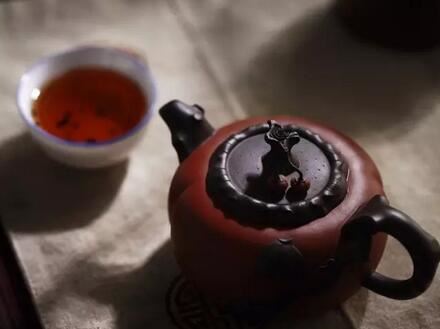
Those with a healthy body type have a moderate build, neither too thin nor too fat. Men tend to be muscular, while women have an appropriate amount of subcutaneous fat. They have a rosy complexion that is smooth and lustrous, and they exude vitality. They have a good appetite without being either picky or greedy eaters; they do not feel excessively hungry before mealtime, nor do they experience bloating after eating small amounts of food. People with a healthy body type are not bothered by cold in winter or heat in summer, and they can adapt to seasonal and climatic changes.
What different effects and implications do drinking Tea bring about for different body types? The properties of various teas correspond to different human body types. Drinking Tea in moderation can be more beneficial to health.
Warm Reminder: This article provides some basic insights for reference only.
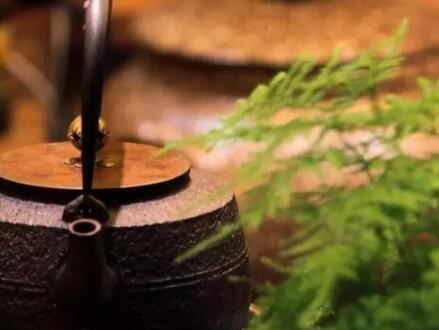
I. Balanced Body Type
Healthy and robust, these individuals have a good appetite, sleep well, and are cheerful. They have a strong ability to adapt to social and natural environments. They typically have a well-proportioned and strong physique, a ruddy and lustrous complexion, glossy hair, bright eyes, and red and moist lips. They are not easily fatigued, have abundant energy, and enjoy good sleep and appetite. They also have normal bowel movements and urination, and a sociable and open-minded disposition.
Disease Tendency: Low risk of illness
Health Maintenance:
1. Do not overeat or under-eat; avoid overly cold or hot foods.
2. Consume more whole grains, vegetables, and fruits, and less greasy and spicy foods.
3. Young people can engage in activities like running and ball games, while seniors can partake in gentle exercises such as walking and practicing Tai Chi.
Tea Recommendation:
All types of teas are suitable. In spring, drink Green Tea; in summer, opt for White Tea or green tea; in autumn, choose wulong tea; and in winter, drink black tea, aged Pu'er, or dark tea.
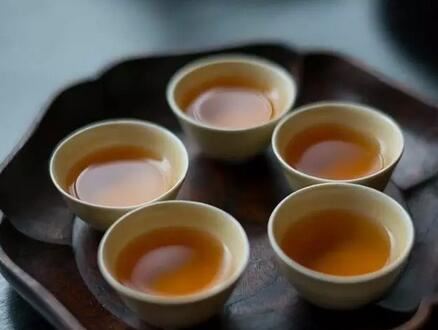
II. Qi-Deficient Body Type
Individuals with this body type often feel weak, sweat profusely, and experience shortness of breath. They are frequently tired and lack energy. They prefer quietness, feel uncomfortable eating or drinking cold foods, and may have loose stools and clear urine. Their personalities tend to be introverted and gloomy. They catch colds easily, have weak resistance when ill, and take longer to recover. They are also prone to conditions such as organ prolapse, including ptosis of the stomach.
Disease Tendency: Susceptible to colds, weak resistance when ill, prone to organ prolapse (e.g., ptosis of the stomach).
Health Maintenance:
1. Consume foods that strengthen the spleen and nourish qi, such as soybeans, white adzuki beans, shiitake mushrooms, jujubes, longans, and honey.
2. Engage primarily in gentle exercises like walking and Tai Chi. Regularly massage the Sanyinjiao acupoint (refer to Baidu for its location).
3. For those who often have spontaneous sweating and colds, taking Yù Píng Fēng Sàn can be helpful.
Tea Recommendation:
Avoid unfermented or lightly fermented teas. Opt for teas such as Qimen black tea, Dian Hong, roasted wulong teas like Yan Cha and Dan Cong, as well as aged Pu'er and dark teas. Fermented teas are generally milder.
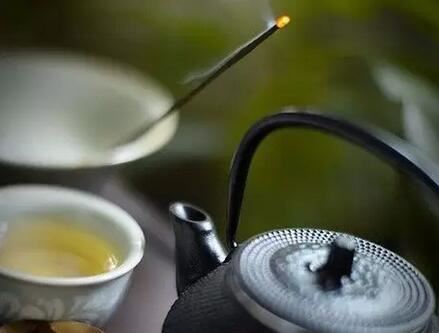
III. Damp-Heat Body Type
These individuals often have oily faces and noses, and are prone to acne and skin infections. They have a bad breath odor, and their stools are sticky and incomplete, with yellowish urine. Women may have yellow vaginal discharge. They frequently experience bitterness in the mouth, bad breath, or an unpleasant taste, and their urine has a warm sensation and is yellow in color.
Disease Tendency: Skin infections, jaundice, etc.
Health Maintenance:
1. Eat a light diet rich in cool and sweet foods like mung beans, water spinach, amaranth, celery, cucumber, winter melon, lotus root, watermelon, and others. Avoid spicy and hot foods that promote heat.
2. Quit smoking and alcohol consumption. Avoid staying up late and overworking yourself.
3. Suitable activities include medium-distance running, swimming, mountain climbing, various ball sports, martial arts, and others.
Tea Recommendation:
For damp-heat body types, opt for teas that detoxify and refresh, such as pure-flavored Tieguanyin and Wuyi rock tea. You can also make blended teas like lemon black tea, goji berry black tea, and barley tea. There are many options!
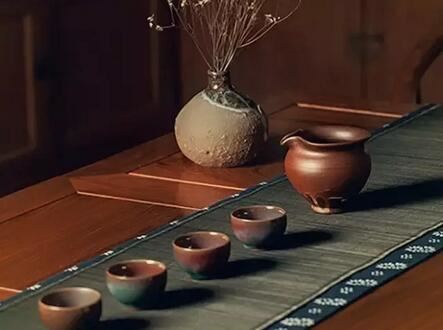
IV. Yin-Deficient Body Type
If you are heat-sensitive and often feel warmth in your hands and feet, have flushed cheeks, dry skin, and a dry mouth and throat, you may have a yin-deficient body type. People with this body type tend to be slender, unable to tolerate heat, and often experience dry eyes, a dry mouth and throat, thirst, and dry skin. They also tend to be irritable.
Disease Tendency: Prone to coughing, dry syndrome, hyperthyroidism, etc.
Health Maintenance:
1. Eat more cool and nourishing foods like mung beans, winter melon, sesame seeds, lily bulbs, and others. Avoid warm and dry foods.
2. Ensure adequate rest during the day. Avoid staying up late.
3. Exercise moderately, controlling perspiration and replenishing fluids as needed.
Tea Recommendation:
Try refreshing teas like yellow tea and white tea. Examples include Mengding Yellow Bud, Junshan Silver Needle, Baihao Silver Needle, and White Peony. If you prefer blended teas, consider silver ear tea, mulberry tea, and goji berry jujube tea.
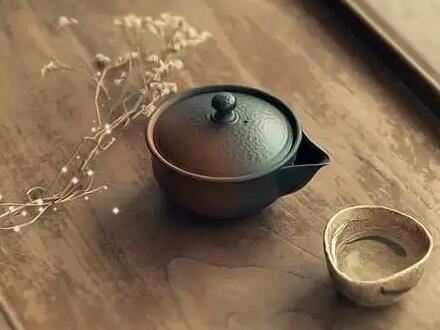
V. Qi-Constricted Body Type
Often melancholic, anxious, and fragile, individuals with this body type are usually slim and frequently feel depressed without cause. They may experience palpitations and insomnia. They are emotionally vulnerable, easily frightened, and often feel pain in the chest and sides. They may also experience discomfort or a foreign body sensation in the throat and have difficulty sleeping.
Disease Tendency: Depression, neurosis, fibrocystic breast disease, etc.
Health Maintenance:
1. Eat wheat, seaweed, kelp, radish, golden orange, hawthorn, and other foods that promote qi flow, relieve depression, aid digestion, and soothe the mind.
2. Avoid caffeinated beverages like tea and coffee before bedtime.